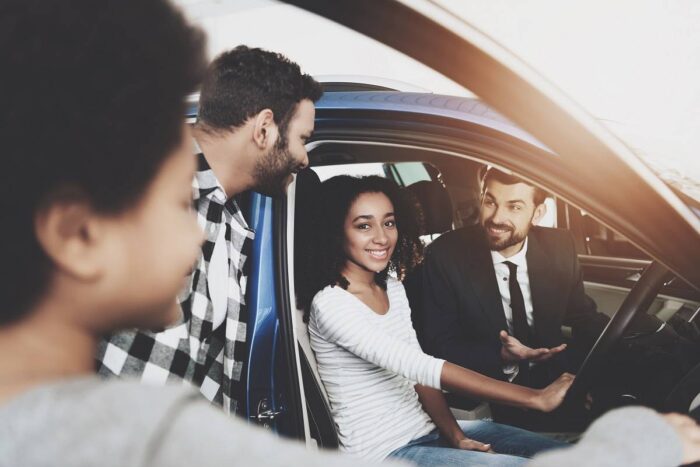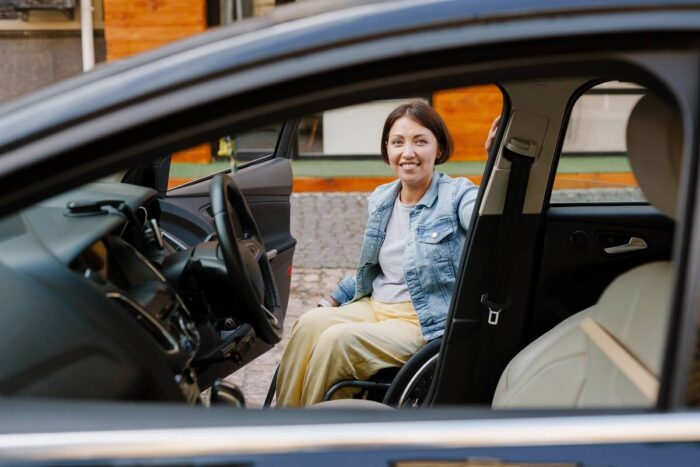In this modern world, having a car is no longer a luxury. Today, cars are necessary due to their significance in our daily lives. Cars can help you get to work on time, find new employment opportunities, drop off and pick up your kids to and from school, and make traveling efficient, thereby saving time.
However, car payments in the US are becoming tougher due to increasing interest rates, rising car prices, and stricter lender standards. This issue is even more prevalent among low-income families with a poor credit history, forcing them to pay greater down payments if they want to qualify for an auto loan.
Your car can be repossessed if you fail to resume payments. Furthermore, you may still owe money even if you no longer own your former car. As a result, your credit rating can suffer for years, making it difficult to borrow money again and increasing your interest rate on any future loans you take out.
Automotive Industry In The US
According to the Automotive News Research & Data Center, the number of car sales in the United States in 2022 was 13.865 million, 8% less than in 2021. This represents the greatest decline in US car sales since the Great Recession.
California represented 11.74% of the US car market in 2021, with 136.8 billion US dollars in car sales. 40.31% of US car sales come from California, Texas, Florida, New York, and Pennsylvania.
If you need help getting a car, the following sections will guide you through the various programs that can assist you.
If your grandparent was a World War 2 veteran, you might be eligible for a scholarship for the grandchildren of World War II veterans.
Programs For People Who Need Help Getting A Car

For people from middle-class or low-income families, buying a new car is a distant dream. Car prices are at a historic high due to the still disrupted auto industry supply chains that were upended due to the COVID-19 pandemic.
Since car buyers who cannot afford new cars turn to used cars, this rising price trend has also impacted the used car market. However, the following programs assist people who need help getting a car in various ways.
Charities
Finding and maintaining a job can be challenging due to transportation costs. Low-income families, single parents, veterans, or others in need often receive a free donated car or truck from charities like the Salvation Army.
Unemployed or low-income families can apply for grants to buy cars through some charities. People with poor credit and those without money can usually receive charitable assistance for no cost. Many charities also assist with routine maintenance and car repairs from time to time.
Cars4Heroes
Hundreds of donated vehicles are awarded yearly to those in need through Cars 4 Heroes. Some people need a van that is accessible so that they can take their disabled loved one out for the first time in years, and others need a normal car to drive to work and doctors' appointments.
Some donated cars need repairs or are not roadworthy, and those cars are usually sold to pay for repairs on other vehicles. Veterans, active duty military personnel, first responders, and civilians can apply for free cars with Cars4Heroes.
1-800-Charity Cars
Since its inception, more than 5,000 vehicles have been donated to people in need all over the country by 1-800-Charity Cars. Low-income individuals and families in need can receive free donated cars from 1-800-Charity Cars, a national non-profit organization.
Applicants must demonstrate a genuine financial need for a car, and the charity has a rigorous application process. In the end, those who are successful in the process are well rewarded. It is worth considering 1-800-Charity Cars if you can't afford to buy a car but need help getting a car.
Free donated vehicles are provided for needy families using the car donations they receive. Visit their website to apply for a free car.
OnlineCarDonation.com
Struggling women, physically disabled people, families living in shelters, and families of military personnel can get a car from OnlineCarDonation. Each application is evaluated individually by OnlineCarDonation, and the operational vehicle is awarded based on their results.
A free car can be applied on their website by filling out an application form and describing your needs. Once your application is approved, the organization will contact you if you are selected to receive a donated car. You can visit their contact page to request a free car donation.
Vehicles For Change
Non-profit Vehicles for Change is the United States' largest program dedicated to affordable car ownership. By providing affordable vehicles, they aim to make it easier for families to find employment, educate themselves, eat, and engage in recreation.
Almost 7000 vehicles have been provided to Maryland and North Virginia families through Vehicles for Change since 1999. Family economic stability and employment opportunities are improved due to these vehicles. You can apply for a discounted or free car on their website.
Working Cars For Working Families
Working Cars for Working Families fights to ensure that families receive fair deals when buying and financing cars and that their lack of transportation doesn't impede their economic success. To make the used car market and lending more transparent and fair, they seek to reform the policies governing them.
Aside from advocacy, they also promote policies and practices that benefit non-profit ownership programs providing cars to low-income families. The beneficiaries of this program can get low-interest loans and free cars. Visit their website to find a car program.
Good News Garage
As one of the first non-profit car donation programs in the United States, Good News Garage (GNG) was established in 1996. Individuals and families striving for a self-sufficient living are awarded donated cars that have been repaired as needed.
They have provided donated vehicles to over 5,500 low-income families for over 25 years, giving them a chance to rise out of poverty and secure a stable future. If you need a laptop for work or school but cannot afford one, read our article on applying for a free laptop from the government.
What To Know About Getting A New Car

Whether you are buying a new car or an old one, there are many things you should know about the proper maintenance of the car. Car owners are often unaware of the care that goes into keeping a car, which ensures its long life and reduces the risk of breaking down unexpectedly or sustaining critical internal damage due to negligence.
Average Cost Of Car Repairs
The cost of car repairs can be expensive for some people, especially if they are low-income. It is estimated that, on average, cars cost more than $1000 per year to maintain, depending on the type and model of the vehicle.
A car repair typically costs between $300 and $500. Many factors determine the actual cost: the issue itself, the make and model of the car, the location where you live, and how long you wait before getting maintenance done. Parts used in the repair process are not included in these costs.
Insurance And Car Repairs
The most relevant types of auto insurance concerning car repairs are collision insurance and comprehensive insurance. Collision insurance can pay for repairs or replacement in the event of an accident with a stationary object or another vehicle.
When you lease or finance your car, your lender may require collision coverage, even though it's not legally required in any state. It is considerably less expensive than collision insurance to insure your car against damage not caused by collisions. This optional insurance coverage provides comprehensive protection for your vehicle against damage resulting from circumstances beyond your control.
Vandalism, theft, vandalism, damage to glass and windshields, fire, animal accidents, weather, or other natural disasters fall into this category.
Regular Maintenance
People often neglect basic car maintenance due to work, family, and other obligations. You may not think it matters, but regular vehicle maintenance can make a significant difference.
Check the owner's manual when you need to schedule your vehicle's recommended maintenance services. Spark plugs, wires, fluids, and serpentine belts are generally checked or replaced as part of basic car maintenance.
The following are an integral part of car maintenance:
- Oil and filter change: Three to six months is the recommended interval for changing the oil in most vehicles. Changing the filter some manufacturers recommend every two oil changes to prevent it from prematurely clogging.
- Tire rotation: Rotating your tires involves repositioning them in specific patterns from front to back or side to side of your vehicle. It is an essential part of tire maintenance and safety. Rotating your tires may also be necessary to ensure that your warranty remains valid.
- Multipoint inspection: A multipoint inspection is typically performed by auto dealers, mechanics, and service centers to detect any issues before they cause a breakdown. Your vehicle will be thoroughly inspected for nearly every component during this service. An inspection of your vehicle by a certified technician can identify any parts that need replacing and whether or not your vehicle is operating properly.
Parts Replacements
The car you drive will eventually break down despite its well-maintained condition. People often try to replace car parts themselves when they don't want to spend money on a mechanic. You can extend the life of your vehicle by keeping it well cared for, which prevents many issues and keeps your car running smoothly.
- Engines: Depending on the engine type and repair required, the cost of replacing or repairing an engine may vary. It's common for engine repairs to cost between $3000 and $4500.
- The fan belt, timing belt, coolant hose, radiator, water pump, filter, and spark plug are all items that are normally replaced if a complete engine overhaul is not required. Additionally, engine mounts, clutch assemblies, and spigot bearings may need to be replaced during the inspection.
- Brake pads: When you press the brake pedal, you may hear squeaking, squealing, or grinding noises that indicate your car's brake pads or rotors need replacing. Similarly, you'll need to replace your brake pads if the brake pedal travels more than usual before you feel any braking force, or if you have to stop farther than usual, then you may feel like you need to press the brake pedal harder.
- Rotors usually need to be replaced between 30,000 and 70,000 miles, while brake pads can last up to 25,000 miles if maintained properly. Different driving conditions and styles can affect the exact numbers.
- Batteries: Battery life varies greatly from car to car, and some cars don't require a new battery for up to five years, while others do need one within two years. It is generally recommended that your car be replaced with a new battery every three to four years.
- It is also important to replace your car battery regularly. For a battery with a shorter life, traditional batteries cost around $60 or upwards of $300, depending on what you need.
- Tires: If the tread on the tire is not worn out, it should be replaced every five to six years. The tread on tires and the condition of the wheels should be checked much more frequently for wear and tear.
- The average life of a tire should be between 50,000 and 60,000 miles. There is a big difference between manufacturers, though. As much as 80,000 miles is expected from some tires, while as little as 30,000 miles can be expected from others.
Frequently Asked Questions
People who are getting a new car or a car for the first time often have many questions on their minds. The following are the frequently asked questions of people who need help getting a car.
If your car needs maintenance or repairs, you should contact a mechanic or local auto workshop. They may find out what is wrong with your car and suggest repairs. People who listen to their mechanics and get worn out or damaged car parts replaced in time tend to increase the life of their cars.
If you're on a tight budget or need credit to back your car purchase, you can approach different organizations that exist to provide cars to people who cannot afford them. Many charities, non-profit organizations, and government programs help low-income individuals find free or affordable cars.
The most hassle-free way to get a new car is to visit a showroom and pay the full asking price of the car that you like. However, if you cannot afford a new car or cannot pay the entire price in one go, you can opt for a cheaper, used car, an auto loan, or choose a payment plan that requires monthly payments.
Buying a car, whether a new or a used car, is a significant financial decision that requires careful deliberation and the setting aside of funds to cover the expenses of the purchase. If you are low-income and need help getting a car, you have several options that you can use to obtain a car free of cost or at a reduced price.
Charities and community organizations often use donations to purchase used cars, repair them and give them back to the individuals and families that need them the most.
While you're exploring ways to get assistance with a car, did you know college students have opportunities for free vehicles? Dive into our latest blog post to uncover how students can hit the road without the costs!
To read more about government and private assistance programs, check out the rest of the Gov-Relations resources. If you are a single father struggling to keep a roof over your head, read our blog post on how single fathers can check if they are eligible for housing benefits.
While you're exploring options to assist in acquiring a vehicle, if you're in California, there are tailored programs just for you. Dive into our detailed article on programs to help get a car in California to uncover specific resources and enhance your journey to vehicle ownership.







